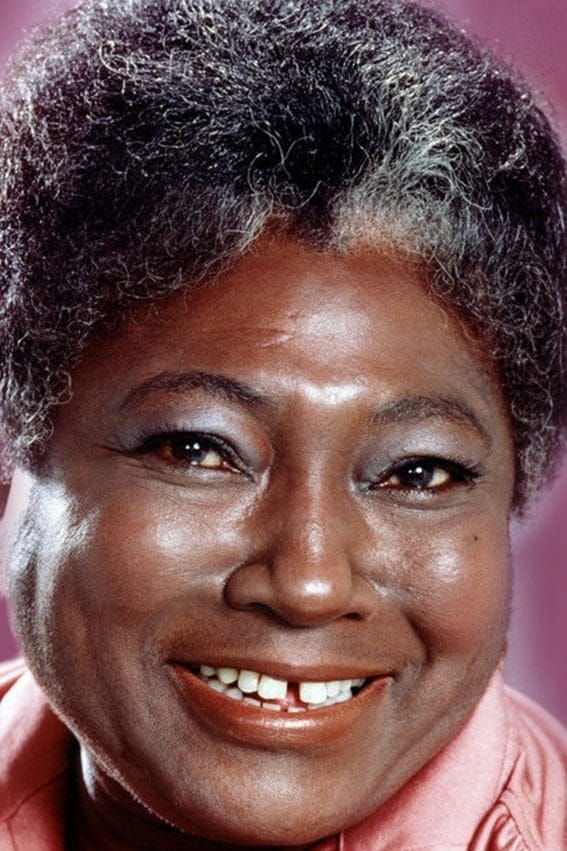On this date in 1920, Esther Rolle was born. She was a Black Emmy Award-winning actress.She was born in Pompano Beach, FL, the tenth of 18 children both parents were of Bahamian descent. Rolle attended Booker T. Washington High School in Miami, and then attended Spelman College for a year before moving to New York. She supported herself by working in a pocketbook factory while auditioning for the theater.While taking drama classes at George Washington Carver School in Harlem, she got a scholarship to study acting at New York’s innovative New School for Social Research. During this time she met and became a member of African dance master Shogola Oloba’s dance troupe, Asadata Dafora. She became the troupe’s director in 1960.Two years later, Rolle made her acting debut as Felicity in Jean Genet’s “The Blacks.” During the 1960s” (1964), “Amen Corner” and “Day of Absence” (1965). Rolle’s film debut was in “Nothing But the Man” in 1964, and in 1967, she became an original member of the Negro Ensemble Company. While working in Melvin Van Peeble’s “Don’t Play Us Cheap” in 1972, she was asked to audition for the role of the maid on Maude, a Norman Lear television show being spun off from “All in the Family.” After getting the role, she took it with the understanding that her character, Florida Evans would not be a typical maid. Rolle proceeded to turn Evans into a popular character, and in 1974, her character and the husband of her character were spun off into the television series “Good Times.”She continued to act in other roles on television and on stage throughout the late 1970s and 80s. Rolle won an Emmy award for her performance as a housekeeper in the 1978 TV movie “Summer of My German Soldier.” In 1989, she played a housekeeper in “The Member of the Wedding” at the Roundabout Theater. That same year she played the matriarch in a remake of “A Raisin In the Sun,” as well as the maid in the Academy Award-winning film “Driving Miss Daisy.”In 1990, Rolle became the first woman to win the NAACP chairman’s Civil Rights Leadership Award and one year later she was inducted into the Black Filmmakers Hall of Fame. Rolle’s last two films were “Down in the Delta” and “Train Ride.”Rolle’s only marriage was to Oscar Robinson. The two were married from 1955 to 1975. They had no children.Rolle died on November 17, 1998, in Culver City, California, from complications of diabetes, nine days after her 78th birthday. A devout member of the African Methodist Episcopal Church, Rolle requested that her funeral be held at Bethel African Methodist Episcopal Church. She is buried in Westview Community Cemetery in Pompano Beach, Florida. The cemetery is a historically black burial ground created in 1952, a time when the laws and customs of Florida did not permit white people and black people to be buried in the same cemetery.
Written by Dianne Washington

